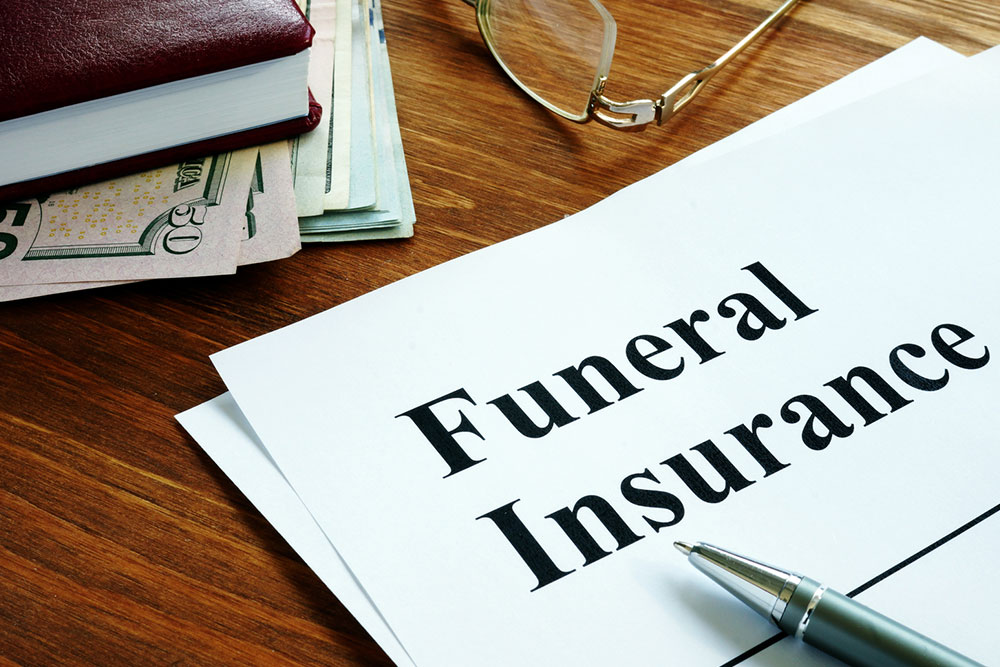7 benefits of funeral expense coverage for seniors

Discussing burials and funerals can be challenging for many as these are sensitive topics. Still, one must understand the factors involved in planning these events, such as burial or funeral expense insurance. In a nutshell, this insurance helps ensure that the deceased’s family does not bear the burden of the funeral expenses during their time of grief. Here are seven benefits of funeral insurance coverage that seniors should know while signing up for a plan.
Financial security for loved ones
Losing a family member can be a difficult time for anyone. And the last thing a person wants to worry about is the financial burden of a funeral. A funeral insurance policy offers financial security for the deceased individual’s family, ensuring they do not have to bear the funeral expenses. Such services are helpful during a difficult time as they ease the burden of dealing with a loved one’s passing.
Reduced stress
The stress of planning a funeral could be hard to handle when grieving. A funeral policy helps ease the stress during this time. It lets someone else assume the responsibility of arranging the event and takes the burden off the deceased individual’s family members. The funeral insurance plan also helps policyholders finalize their wishes and reveals them to their loved ones after their passing. This ensures the family members follow the deceased individual’s wishes and that everything is handled well.
Protection against rising costs
Funeral and burial services are expensive. The costs keep rising each year, which could turn into a heavy financial burden for the deceased’s loved ones in the event of their passing. A funeral policy protects the family against these rising costs and ensures the expenses are met regardless of inflation. A funeral policy could help lock in the cost of the service at the current price. So, even if the funeral fees continue to rise over the years, the individual’s family members do not have to pay more than the amount decided at the time of signing up for the plan.
Access to additional benefits and support
Besides covering the funeral and burial expenses, the policy offers loved ones access to additional benefits and support. For instance, the family may be provided grief counseling, legal assistance, and financial planning services. These benefits ensure the deceased’s family members are free from any burden and get the support they require through this challenging time. Seniors should check which benefits are included when signing up for a plan.
Transportation coverage
Many people pass away while traveling across the world. The cost of transporting the deceased back to the country is significantly high. To tackle this challenge, certain insurance companies offer plans that cover the cost of transportation. For instance, some prepaid plans promise to transport the deceased to the funeral home of their choice should they pass away more than 75 miles from their permanent residence. This option is suitable for seniors who travel frequently.
Relocation protection
Seniors could also benefit from relocation protection if they purchase funeral insurance. This feature allows the prepaid funeral and cemetery plan to be transferred to any funeral home within the insurance company’s network. Therefore, even if a job transfers a senior to another state, or they decide to move in with their children and grandchildren, they will still have access to the respective funeral coverage. When signing up, one should speak to their funeral insurance coverage provider to find out their plan’s precise relocation protection benefits.
Customizable plans
There is no one-size-fits-all funeral insurance policy. Each plan is customized to fit individual needs and preferences. Therefore, seniors should research thoroughly and pick the right option. It is crucial to consider the type of funeral one desires, the services included in the plan, and the coverage one needs. A customizable plan ensures families are at peace, knowing everything is carried out per the departed member’s wishes. For instance, one could plan the location of their funeral, the decor, readings, music, flowers, and even the food and drinks. Moreover, the policy might also be adjustable, so one can update the services when necessary to ensure it continues to meet their needs. A few types of funeral coverage options include the following:
- Simplified issue life insurance
Applicants who sign up for this policy do not have to undergo a comprehensive healthcare exam but still need to answer a few questions associated with their health. Simplified issue policies offer quicker approvals and may have higher coverage amounts than other insurance types.
- Guaranteed issue life insurance
Seniors do not have to answer health-related questions or undergo a healthcare examination when applying for this policy. One may qualify as long as they fall within the age range specified by the insurer. This range is usually between 50 and 85, but seniors must verify the same with the insurance company.
- Pre-need insurance
A pre-need policy is sold directly by funeral homes and is designed to cover specific costs of prearranged funeral and burial services. The funds from pre-need insurance policies are paid directly to the funeral home or cemetery, ensuring the services specified by the policyholder are rendered as planned.









